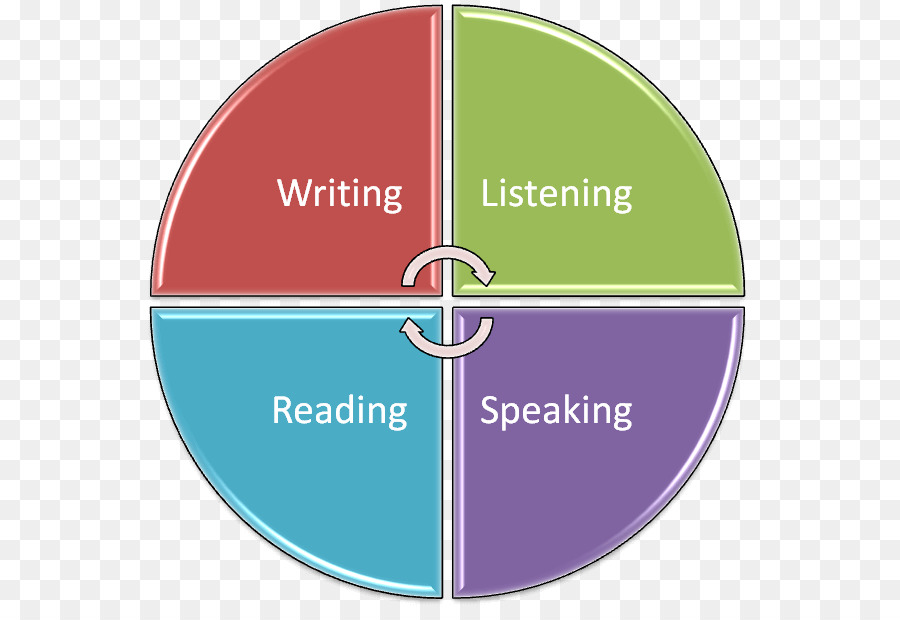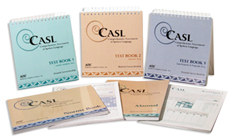 A few weeks ago I reviewed the Social Language Development Test Elementary (SLDTE) and today I am reviewing the Social Language Development Test Adolescent (SLDTA) currently available from PRO-ED.
A few weeks ago I reviewed the Social Language Development Test Elementary (SLDTE) and today I am reviewing the Social Language Development Test Adolescent (SLDTA) currently available from PRO-ED.
Basic overview
Release date: 2010
Age Range: 12-18
Authors:Linda Bowers, Rosemary Huisingh, Carolyn LoGiudice
Publisher: Linguisystems (PRO-ED as of 2014)
The Social Language Development Test: Adolescent (SLDT-A) assesses adolescent students’ social language competence. The test addresses the students ability to take on someone else’s perspective, make correct inferences, interpret social language, state and justify logical solutions to social problems, engage in appropriate social interactions, as well as interpret ironic statements.
The Making Inferences subtest of the SLDT-A assesses students’ ability to infer what someone in the picture is thinking as well as state what visual cues aided him/her in the making of that inference.
The first question asks the student to pretend to be a person in the photo and then to tell what the person is thinking by responding as a direct quote. The quote must be relevant to the person’s situation and the emotional expression portrayed in the photo.The second question asks the student to identify the relevant visual clues that he used to make the inference.
Targeted Skills include:
- detection of nonverbal and context clues
- assuming the perspective of a specific person
- inferring what the person is thinking and expressing the person’s thought
- stating the visual cues that aided with response production
A score of 1 or 0 is assigned to each response, based on relevancy and quality. However, in contrast to the SLDTE student must give a correct response to both questions to achieve a score of 1.
Errors can result due to limited use of direct quotes (needed for correct responses to indicate empathy/attention to task), poor interpretation of provided visual clues (attended to irrelevant visuals) as well as vague, imprecise, and associated responses.

The Interpreting Social Language subtest of the SLDT-A assesses students’ ability to demonstrate actions (including gestures and postures), tell a reason or use for an action, think and talk about language and interpret figurative language including idioms.
A score of 1 or 0 is assigned to each response, based on relevancy and quality. Student must give a correct response to both questions to achieve a score of 1.
Targeted Skills:
- Ability to demonstrate actions such as gestures and postures
- Ability to explain appropriate reasons or use for actions
- Ability to think and talk about language
- Ability to interpret figurative language (e.g., idioms)
Errors can result due to vague, imprecise (off-target), or associated responses as well as lack of responses. Errors can result due to lack of knowledge of correct nonverbal gestures to convey meaning of messages. Finally errors can result due to literal interpretations of idiomatic
expressions.

The Problem Solving subtest of the SLDT-A assesses students’ ability to offer a logical solution to a problem and explain why that would be a good way to solve the problem.
To receive a score of 1, the student has to provide an appropriate solution with relevant justification. A score of 0 is given if any of the responses to either question were incorrect or inappropriate.
Targeted Skills:
- Taking perspectives of other people in various social situations
- Attending to and correctly interpreting social cues
- Quickly and efficiently determining best outcomes
- Coming up with effective solutions to social problems
- Effective conflict negotiation
Errors can result due to illogical or irrelevant responses, restatement of the problem, rude solutions, or poor solution justifications.
The Social Interaction subtest of the SLDT-A assesses students’ ability to socially interact with others.
A score of 1 is given for an appropriate response that supports the situation. A score of 0 is given for negative, unsupportive, or passive responses as well as for ignoring the situation, or doing nothing.
Targeted Skills:
- Provision of appropriate, supportive responses
- Knowing when to ignore the situation
Errors can result due to inappropriate responses that were negative, unsupportive or illogical.
The Interpreting Ironic Statements subtest of the SLDT-A assesses sudents’ ability to recognize sarcasm and interpret ironic statements.
To get a score of 1, the student must give a response that shows s/he understands that the speaker is being sarcastic and is saying the opposite of what s/he means. A score of 0 is given if the response is literal and ignores the irony of the situation.
Errors can result due to consistent provision of literal idiom meanings indicating lack of
understanding of the speaker’s intentions as well as “missing” the context of the situation. errors also can result due the the student identifying that the speaker is being sarcastic but being unable to explain the reason behind the speaker’s sarcasm (elaboration).
For example, one student was presented with a story of a brother and a sister who extensively labored over a complicated recipe. When their mother asked them about how it came out, the sister responded to their mother’s query: “Oh, it was a piece of cake”. The student was then asked: What did she mean?” Instead of responding that the girl was being sarcastic because the recipe was very difficult, student responded: “easy.” When presented with a story of a boy who refused to help his sister fold laundry under the pretext that he was “digesting his food”, he was then told by her, “Yeah, I can see you have your hands full.” the student was asked: “What did she mean?” student provided a literal response and stated: “he was busy.”

The following goals can be generated based on the performance on this test:
- Long Term Goals: Student will improve social pragmatic language skills in order to effectively communicate with a variety of listeners/speakers in all social and academic contexts
- Short Term Goals
- Student will improve his/her ability to make inferences based on social scenarios
- Student will improve his/her interpretation of facial expressions, body language, and gestures
- Student will improve his/her ability to interpret social language (demonstrate appropriate gestures and postures, use appropriate reasons for actions, interpret figurative language)
- Student will his/her ability to provide multiple interpretations of presented social situations
- Student will improve his/her ability to improve social interactions with peers and staff (provide appropriate supportive responses; ignore situations when doing nothing is the best option, etc)
- Student will improve his/her ability to interpret abstract language (e.g., understand common idioms, understand speaker’s beliefs, judge speaker’s attitude, recognize sarcasm, interpret irony, etc)

A word of caution regarding testing eligibility:
I would also not administer this test to the following adolescent populations:
- Students with social pragmatic impairments secondary to intellectual disabilities (IQ <70)
- Students with severe forms of Autism Spectrum Disorders
- Students with severe language impairment and limited vocabulary inventories
- English Language Learners (ELL) with suspected social pragmatic deficits
- Students from low SES backgrounds with suspected pragmatic deficits
I would not administer this test to Culturally and Linguistically Diverse (CLD) students due to significantly increased potential for linguistic and cultural bias, which may result in test answers being marked incorrect due to the following:
- Lack of relevant vocabulary knowledge will affect performance
- Lack of exposure to certain cultural and social experiences related to low SES status or lack of formal school instruction
- How many of such students would know know the meaning of the word “sneer”?
- How many can actually show it?
- Life experiences that the child simply hasn’t encountered yet
- Has an entire subtest devoted to idioms
- Select topics may be inappropriate for younger children
- Culturally biased when it comes to certain questions regarding friendship and personal values
- Individual vs. cooperative culture differences
What I like about this test:
- I like the fact that unlike the CELF-5:M, the test is composed of open-ended questions instead of offering orally/visually based multiple choice format as it is far more authentic in its representation of real world experiences
- I really like how the select subtests (Making Inferences) require a response to both questions in order for the responder to achieve credit on the total subtest
Overall, when you carefully review what’s available in the area of assessment of social pragmatic abilities of adolescents this is an important test to have in your assessment toolkit as it provides very useful information for social pragmatic language treatment goal purposes.
Have YOU purchased SLDTA yet? If so how do you like using it? Post your comments, impressions and questions below.
Helpful Resources Related to Social Pragmatic Language Overview, Assessment and Remediation:
Disclaimer: The views expressed in this post are the personal opinion of the author. The author is not affiliated with PRO-ED or Linguisystems in any way and was not provided by them with any complimentary products or compensation for the review of this product.
 A few days ago I posted my first installment in the comprehensive assessment of dyslexia series, discussing common dyslexia myths as well as general language testing as a starting point in the dyslexia testing battery. (You can find this post HERE).
A few days ago I posted my first installment in the comprehensive assessment of dyslexia series, discussing common dyslexia myths as well as general language testing as a starting point in the dyslexia testing battery. (You can find this post HERE). With the passing of
With the passing of  LANGUAGE TESTING
LANGUAGE TESTING Frequently, I see a variation of the following scenario on many speech and language forums.
Frequently, I see a variation of the following scenario on many speech and language forums. Let’s begin by answering a few simple questions. Was a thorough language evaluation with an emphasis on the child’s social pragmatic language abilities been completed? And by thorough, I am not referring to general language tests but to a variety of formal and informal social pragmatic language testing (read more
Let’s begin by answering a few simple questions. Was a thorough language evaluation with an emphasis on the child’s social pragmatic language abilities been completed? And by thorough, I am not referring to general language tests but to a variety of formal and informal social pragmatic language testing (read more  Please note that none of the general language tests such as the Preschool Language Scale-5 (PLS-5), Comprehensive Assessment of Spoken Language (CASL-2), the Test of Language Development-4 (TOLD-4) or even the Clinical Evaluation of Language Fundamentals Tests (CELF-P2)/ (CELF-5) tap into the child’s social language competence because they do NOT directly test the child’s social language skills (e.g., CELF-5 assesses them via a parental/teachers questionnaire). Thus, many children can attain average scores on these tests yet still present with pervasive social language deficits. That is why it’s very important to thoroughly assess social pragmatic language abilities of all children (no matter what their age is) presenting with behavioral deficits.
Please note that none of the general language tests such as the Preschool Language Scale-5 (PLS-5), Comprehensive Assessment of Spoken Language (CASL-2), the Test of Language Development-4 (TOLD-4) or even the Clinical Evaluation of Language Fundamentals Tests (CELF-P2)/ (CELF-5) tap into the child’s social language competence because they do NOT directly test the child’s social language skills (e.g., CELF-5 assesses them via a parental/teachers questionnaire). Thus, many children can attain average scores on these tests yet still present with pervasive social language deficits. That is why it’s very important to thoroughly assess social pragmatic language abilities of all children (no matter what their age is) presenting with behavioral deficits.












 A few weeks ago I reviewed the
A few weeks ago I reviewed the 






 It’s on the tip of my tongue! How many times have you used this expression or heard it from other people. Oftentimes when we think of word-finding deficits we automatically think of it as an adult affliction, however, you would be surprised how many children including even very young children (4+ years of age) are affected by it. Did you know that “
It’s on the tip of my tongue! How many times have you used this expression or heard it from other people. Oftentimes when we think of word-finding deficits we automatically think of it as an adult affliction, however, you would be surprised how many children including even very young children (4+ years of age) are affected by it. Did you know that “